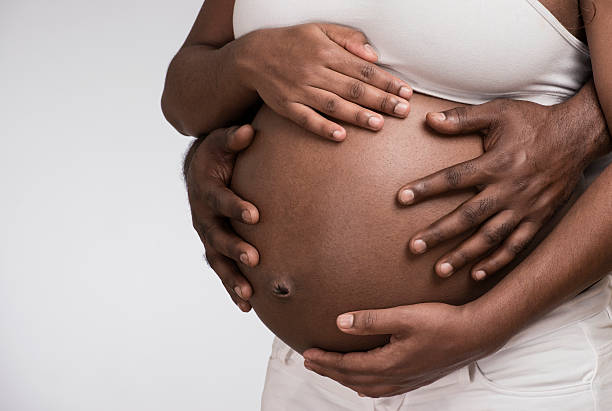
If you're a worker who plans to get pregnant, take heed of a new study that warns that pregnant women who work in hospitals and are exposed to disinfectants may be more likely to have children who suffer from asthma and eczema.
The Japanese researchers focused on occupational disinfectant use, notes study author Dr. Reiji Kojima, not use of disinfectants by the general public.
"The study found that occupational disinfectant use during pregnancy increased the risk of developing asthma and eczema in children. However, this result still needs to be validated with regard to impact of disinfectant use in general," says Kojima, who is in the University of Yamanashi School of Medicine's department of health sciences.
"There is a clear benefit of disinfectant use in pandemic coronavirus infection, so I think disinfectant should continue to be used," Kojima adds.
For the study, the researchers included more than 78,000 mother-child pairs who were part of the Japan Environment and Children's Study.
The team found that the odds of 3-year-old children having asthma or eczema was significantly higher if their mothers had used disinfectants between one and six times a week, compared to children whose mothers didn't use disinfectants at work: those whose mothers used disinfectants daily had 26% greater odds of an asthma diagnosis and 29% greater odds of eczema, compared to children whose mothers had no work-related disinfectant exposure.
RELATED: Eczema More Common Among Black Children
What is the link between disinfectants and eczema?
The study was observational and couldn't determine cause, but the researchers offered some suggestions.
Chemicals found in disinfectants can cause skin irritation, allergies, infections, and eczema in newborn babies, says Dr. Swati Gaikwad, consultant obstetrician, and gynaecologist, Motherhood Hospital, Pune. “It can aggravate respiratory health issues. Even those with existing respiratory problems will have a tough time if the disinfectants are used on a daily basis. They can damage the respiratory tract through prolonged or repeated exposure, if inhaled. Other signs like skin burns and eye irritation will also be seen,” she explains.
It could be that the disinfectants affect the microbiome, having an effect on the gut and skin microflora of both the mother and child. Or, it could be immune-mediated, meaning that exposure to some chemicals affects the fetus in-utero.
Another possibility is that these mothers are more medically knowledgeable and have sought out health care for their children, the study authors note.
"I think the microbiome is said to be involved in the development of allergic disease in children, and so it is possible that disinfectant use causes the change in microbiome," Kojima adds. "And also it is possible that people in a disinfectant-using occupation are exposed to other chemicals, which may have contributed to the present result. I think further research is needed to elucidate the mechanism."
Other factors that are associated with young children developing asthma or eczema include prenatal exposure to smoking, chemicals, mold and air pollutants, the researchers pointed out in the report. Genetics also play a role.
Breastfeeding is associated with a lower risk of asthma, noted Dr. Jon Romeo, a clinical practicing allergist in Raleigh, N.C., and chair of the American College of Allergy, Asthma and Immunology asthma committee. Romeo was not involved with the new study.
A significant number of children do have transient wheezing during their first five years of life that they outgrow and which is not asthma, Romeo notes.
"I don't think there's any one thing that automatically causes a development of asthma," Romeo says.
While the study size is a strength, a limitation in disinfectant use was self-reported and the cleaning agents were not named. Among the disinfectants known to be widely used in the medical field are alcohol, chlorhexidine and quaternary ammonium salts.
Alcohol-based hand sanitizers tend to be more of an irritant than an allergen, Romeo adds.
Exposure to disinfectants in occupational settings has previously been associated with asthma and dermatitis in the individuals using them.
"I would be a little cautious about making blanket recommendations from any one study, but I think it's certainly, knowing what we know about postnatal exposure to some of these disinfectants and irritants and the risk of associated asthma, I think it's definitely an important thing to think about," Romeo says.
"Whether prenatal exposure to these things from the mom's history could increase the risk of their child developing asthma, I think it's something that definitely needs to be looked into more," Romeo adds. "I think it's great that the authors were able to highlight this association. I'm guessing it's going to spur additional studies in the future."
Using disinfectants safely
Dr. Gaikwad advises using the following tips when using disinfectants:
- Choose an appropriate disinfectant based on the type of surface to be disinfected (hard surface, soft surface, electronics).
- Opt for gloves while using disinfectants. Using the proper concentration and application method is essential.
- Don’t mix disinfectants with cleaners, other disinfectants, or other chemicals. It is better that pregnant women stay away from disinfectants or wear masks when they are used at home or outside.
“Disinfectants are like antibiotics and should not be used indiscriminately. They can also cause infertility and create antibiotic-resistant superbugs. If used on contact surfaces in kitchens, they can contaminate food in contact even after the cleaning is done,” Dr. Rohini Kelkar, senior consultant, clinical microbiology, Metropolis Healthcare Ltd. says.
If cleaning at home, Dr. Kelkar says liquid soap and hot water are ideal.
“Handwashing with soap and water is the best way to prevent the transmission of infections. Sunlight is the best natural disinfectant,” she said.









